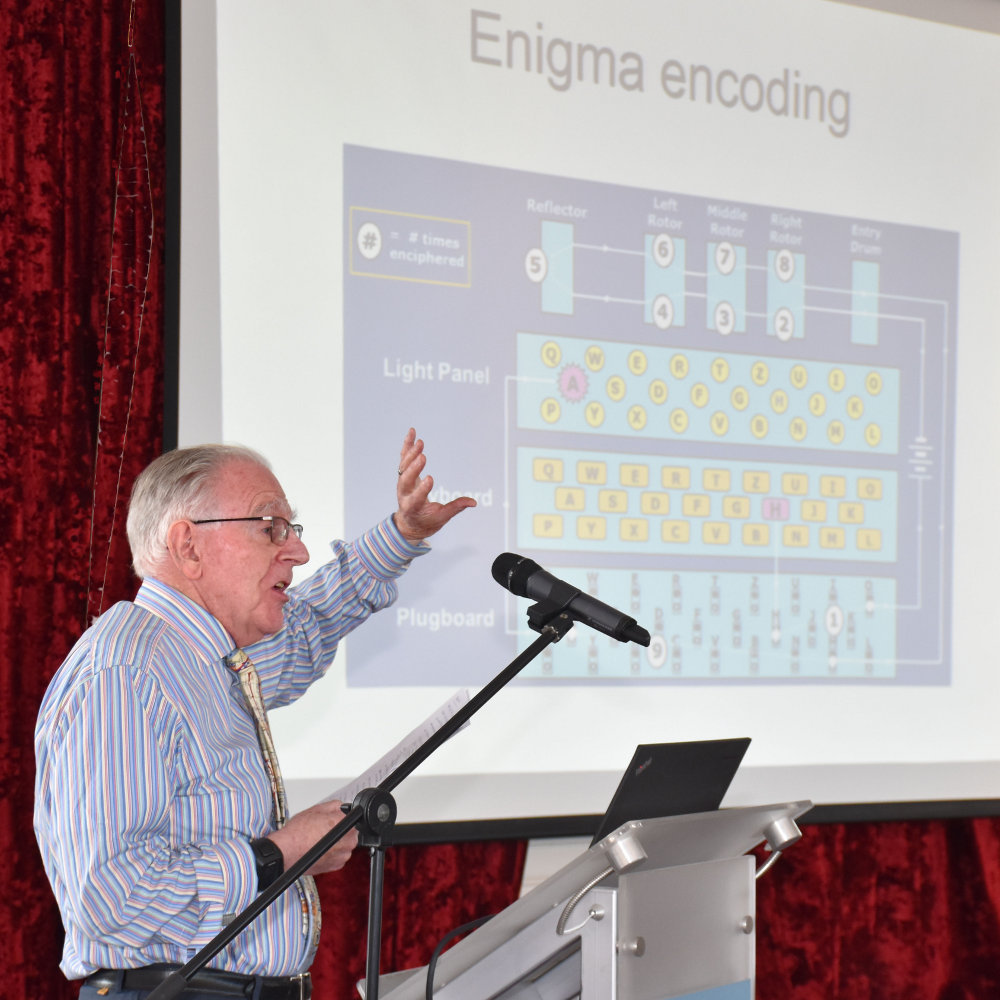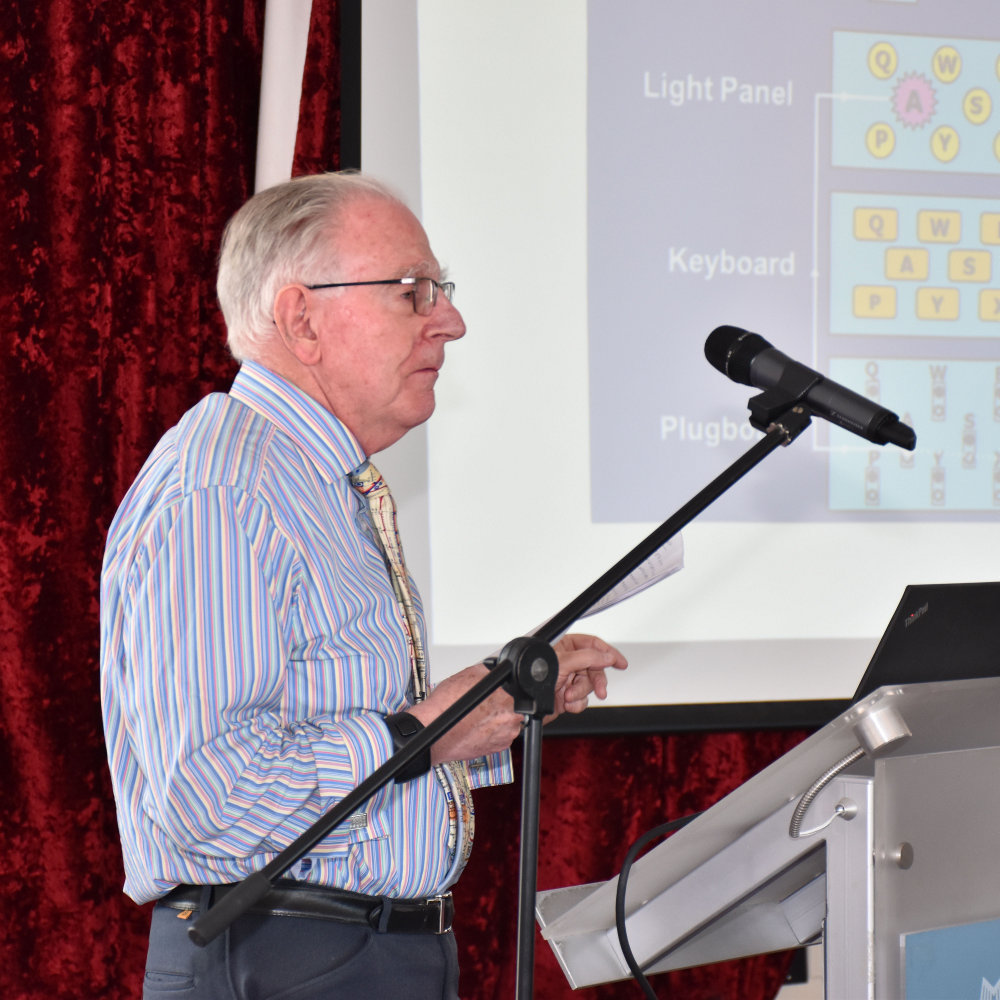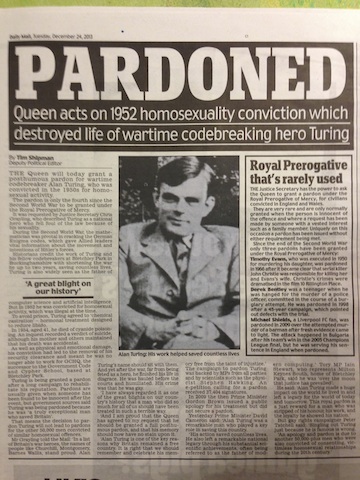"He changed the world"

In 1936, Turing published a paper "On Computable Numbers with an Application to the Entscheidungs Problem" that is now recognised as the foundation of computer science. Key to Alan's life work, his great insight was to realise that any calculation could be done by shuffling 0s and 1s about, with coded instructions on an infinite paper tape. This he did conceptually on a machine which he visualized and proved that a computer was feasibly possible before the technology could produce it. His purely hypothetical device he called an automatic machine but it has subsequently been renamed a Turing Machine. His thinking underpins modern IT and the devices we now use and depend upon so much. Google's Alma Whitten has said: "The things that he contributed to computer science weren't the things that just happened to be true in one particular year or one particular decade, they were the things that are fundamentally true so they are always going to be with us in the same way as things that Galileo and Newton contributed to physics are always going to be with us."

In civilian life constrained by the Official Secrets Act Alan was unable to use his experience and knowledge gained during the war years and was faced with the pain of watching things being developed and designed yeas later that he would have been able to do many years before. In Spring 1948 he accepted an invitation to join the Computer Machine Laboratory in Manchester University and published many papers his most famous being "Computer Intelligence and Machinery" in 1950.
PP Bryan reflected on Alan's homosexuality, which came to light after he reported on a burglary, and how, ultimately, after trial, opted for chemical castration over a prison sentence. On 8 June 1954 Alan's dead body was discovered, the inquest held on 10 June pronounced a verdict of suicide as an apple nearby had traces of cyanide although both this Mother and Therapist never accepted that, citing accidental death. On 12 June he was cremated. However PP Bryan put forward another potential cause - did Alan Turing know too much? He was cremated (thus removing evidence) with indecent haste after 4 days...who knows?
 This father of modern computer science, an exceptional man with a brilliant min, who was pivotal to breaking the Enigma code, helping to end the war and saving thousands of lives, has finally now been recognised for his fantastic contribution to the war effort and his legacy to science. In 2009 Gordon Brown apologised on behalf of the government noting "the debt of gratitude he is owed makes it all the more horrifying, therefore, that he was treated so inhumanely"; in 2013 he was granted a posthumous royal pardon, formally cancelling his criminal conviction and the Association for Computing Machinery (ACM) now presents the annual Turing Award (sometimes referred to as the "Nobel Prize" of Computing) to "an individual selected for contributions of a technical nature made to the computing community" stipulating that "the contributions should be of lasting and major technical importance to the computer field".
This father of modern computer science, an exceptional man with a brilliant min, who was pivotal to breaking the Enigma code, helping to end the war and saving thousands of lives, has finally now been recognised for his fantastic contribution to the war effort and his legacy to science. In 2009 Gordon Brown apologised on behalf of the government noting "the debt of gratitude he is owed makes it all the more horrifying, therefore, that he was treated so inhumanely"; in 2013 he was granted a posthumous royal pardon, formally cancelling his criminal conviction and the Association for Computing Machinery (ACM) now presents the annual Turing Award (sometimes referred to as the "Nobel Prize" of Computing) to "an individual selected for contributions of a technical nature made to the computing community" stipulating that "the contributions should be of lasting and major technical importance to the computer field".
